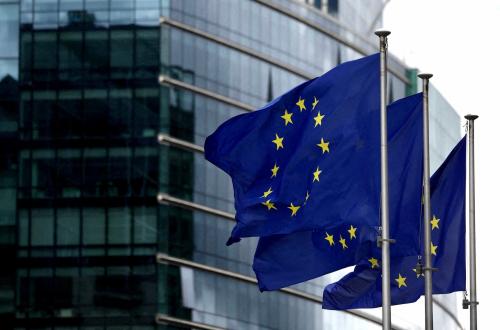Evidence indicates that concerns over privacy do not dampen consumer enthusiasm for new technologies. Scholars have generally attributed this phenomenon to individuals prioritizing convenience, efficiency, or service delivery over privacy. However, a 2015 Brookings paper proposed an alternative explanation, arguing that in fact, countervailing privacy concerns may be a significant part of consumers’ value judgments. For example, the authors hypothesized that people who buy personal products online do so not just because they may be cheaper or more convenient to buy that way, but also, perhaps even most importantly, because of the privacy benefits of the online transaction.
To many, an online transaction that generates a digital footprint for a given person purchasing for example, contraceptive products, and having those products shipped to a particular address may seem like pure privacy harm. But, as the 2015 paper argued, individuals may be more concerned with keeping sensitive information from specific people: from neighbors, friends, parents, teachers, or community members. Therefore, such individuals might be willing to trade a certain degree of privacy from remote entities like corporations or governments in exchange for greater privacy from the people immediately around them from whom they have secrets to keep.
The initial paper laid out this idea on an intuitive level and supported it with anecdotes and circumstantial evidence. In this paper, Benjamin Wittes and Emma Kohse seek to sharpen the picture by testing the theory empirically. The researchers used Google Surveys to collect data on consumer attitudes about privacy and related behaviors, revealing several interesting findings:
- Despite the privacy risks associated with online purchases generally, and with e-readers specifically, significantly more people who read Fifty Shades of Grey reported doing so on an e-reader than among those who read the less provocative The Hunger Games.
- While very few survey respondents preferred to buy general household items online, almost double that number preferred to buy products of a sensitive personal nature online.
- More respondents reported a preference for a human cashier when buying dental floss than when buying products that they might consider embarrassing.
These results, which are explored in detail in the paper, strongly support the thesis that consumers may have active privacy interests in dealing with the very remote, data-collecting companies toward which our privacy fears are generally directed. They indicate that there is a quantifiable difference in consumer preferences that cannot be explained by factors like convenience and that likely reflect a privacy preference—at least some of the time—for doing business with remote entities that collect data, rather than immediately-present people who might judge us.
“Without taking this difference into account,” the authors write, “the picture of the lived experience of privacy for hundreds of millions of real people, as opposed to the hypothesized privacy priorities of self-appointed privacy watchdogs and scholars, will necessarily remain incomplete.”




